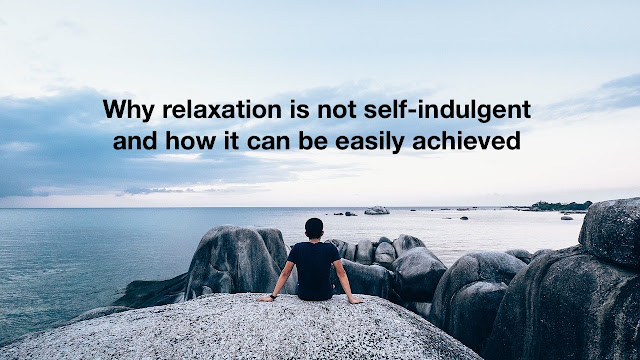Why relaxation is not self-indulgent and how it can be easily achieved
Too often relaxation is seen as a luxury to indulge in when we have time. However, mental and physical relaxation can be the antidote for many of the negative effects of stress.
Learning relaxation techniques and using them frequently can be effective in taking charge of many common stresses and worries experienced in everyday life. The more stressed we are the less able we are to cope and think positively. This can lead to people getting stuck in a cycle of negative thinking which prevents them from being able to achieve the things they want to.
Hypnosis is an ideal way of benefiting from relaxation and encouraging a more positive attitude.
Hypnosis is best described as focused relaxation. The deep relaxation, allows a person to be able to suggest a more positive way of thinking which can have a beneficial effect on their behaviour.
While Hypnotherapy is often used to help people stop smoking or manage the anxiety associated with unwanted behaviours, it is particularly useful in helping a person relax. It does not have to be a long process either and it is possible to learn how to use Hypnosis yourself for continued relaxation.
Stress Management and Hypnotherapy
When the level of stress increases too much it begins to create the symptoms that prevent you from functioning as well as you could. Headaches, tiredness, loss of appetite and motivation are just some of the signs of stress. Left unchecked the symptoms can affect the person over a long period of time.
Recognising the signs of stress that are particular to you, is the first way to start combating negative symptoms. The person who notices when they are starting to feel the strain is better prepared to avoid stress becoming a problem. Ask yourself, what are the signs that show me that things are getting too much?
Hypnotherapy is an ideal way to learn different techniques that can help to manage stress. I explain to clients suffering with stress that by learning basic relaxation techniques they can manage their stress levels and prevent the negative symptoms taking hold. By learning self hypnosis and using suggestion therapy to promote prolonged calmness and relaxation it’s possible to maintain the busy life without reaching ‘burn out’.
When the effects of stress have resulted in those negative symptoms persisting for a long time, it is makes sense to consider what lies beneath. We need to ask ourselves what’s making those symptoms remain even when they are removed from the stressful situation.
Hypnotherapy is an ideal way to learn different techniques that can help to manage stress. I explain to clients suffering with stress that by learning basic relaxation techniques they can manage their stress levels and prevent the negative symptoms taking hold. By learning self hypnosis and using suggestion therapy to promote prolonged calmness and relaxation it’s possible to maintain the busy life without reaching ‘burn out’.
When the effects of stress have resulted in those negative symptoms persisting for a long time, it is makes sense to consider what lies beneath. We need to ask ourselves what’s making those symptoms remain even when they are removed from the stressful situation.
What if current stresses have triggered old anxieties?
Hypnoanalysis is used to treat anxiety. Hypnoanalysis is an analytical therapy which works under the doctrine of cause and effect. For every effect (symptom) there has to be a reason (cause) as to why the person is suffering from anxiety, which is often exacerbated by current stresses. It doesn’t make sense that one person should continually suffer from anxiety, while another person doesn’t. What makes them different?
Many people are surprised how easily they relax, even when they thought they couldn’t. In fact I was once told it was the closest to being asleep; without being asleep.
You can learn the ‘rules’ of positive suggestion and the importance of positive language in our self-talk.
Self-Hypnosis: Yes, you can learn to do it yourself!
A course of self-hypnosis for relaxation usually involves working with a client for a couple of sessions and show them how to use hypnosis, and with a little practice they are able to use the techniques to gain some well needed relaxation in a few minutes a day.Many people are surprised how easily they relax, even when they thought they couldn’t. In fact I was once told it was the closest to being asleep; without being asleep.
You can learn the ‘rules’ of positive suggestion and the importance of positive language in our self-talk.
What the mind perceives, the mind believes and the mind achieves
During the relaxed state known as hypnosis, positive suggestions are used to encourage a different way of coping with our stresses. The calming effect helps a person to manage or overcome the problems they are facing or simply improve their sleep and attitude.
Find out more about booking a relaxation and self-hypnosis training session by contacting David on 01536 350328 or visit www.ketteringhypnotherapy.com





Comments
Post a Comment